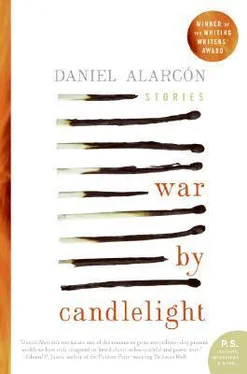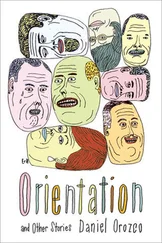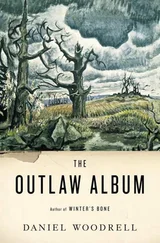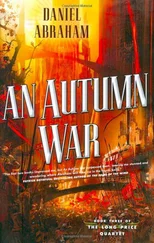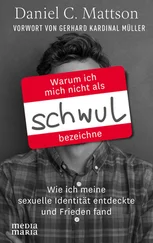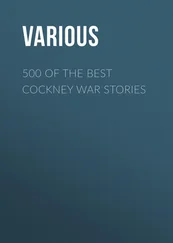At morning roll call in the courtyard of my new school, my class lined up single file. I found my place in the order of last names, Uribe, almost at the back. Ugaz in front of me. Ventosilla behind me. My uniform was neat and pressed and I looked, from a distance perhaps, just like all the others. The teacher called us off, and one by one we marched to our new classroom. It wasn’t until recess that afternoon that my classmates sought me out. “ Oye , you play?” The kid held a soccer ball in his hands. He kicked it to me. I passed it back, making sure I used good form. I introduced myself as Oscar or Chino. “César,” he answered. We formed a team. We grabbed a kid with glasses and put him in goal. We played. We scored and were scored on. We yelled and sweated and cursed and then, when I took the ball from a kid on the other team, he called a foul, dropping to the floor, and held his ankle, grimacing. In San Juan, I would have called him a pussy, and that would’ve been that. But he yelled, “Oye! Oye!” and we stopped. “That’s a foul here, huevón, ” he said, frowning. “Where the hell are you from?”
I didn’t have to respond, but I did. I could have said any place in the city, but I didn’t. “San Juan de Lurigancho,” I answered.
Of course, eventually they would have found out where I was from. They would have seen me walking back to the Avenida Arequipa to catch the bus home. They would have known that I didn’t live in La Molina or Surco. But perhaps if they hadn’t learned this detail on the very first day, if they had known me better, they wouldn’t have associated me with the criminal reputation of my district.
“San Juan?” he said, breaking into a cruel smile. “Oooooohh…Habla Piraña!”
I met Tonio the next morning at eight-thirty in front of San Francisco. He was already painted and dressed. I was still shaking off sleep and a red wine headache. He introduced me to his partner, a yellow-faced clown named Jhon.
“You’re the reporter?” Jhon asked suspiciously.
“Be nice,” said Tonio.
He pulled an oversize polka-dotted suit from his backpack. It was white with green dots. It fit me like a garbage bag. Tonio declared it perfect. Jhon agreed. A pair of green shoes was next; I wiggled my feet into them. They were twice the length of my forearm. Then Tonio handed me a mirror and three plastic canisters of face paint, each the size of a roll of film. “You take care of that,” he said, holding out a thin brush.
I felt outside of myself, the details of the previous night’s conversation so hazy and wine soaked, I couldn’t recall exactly how I had ended up there or what commitments I had made. In the mirror, I watched myself transform. I put red circles on my cheeks. Jhon passed me a nose. It was an oversize red Ping-Pong ball cut in half and threaded by a rubber band. It fit nicely. Finally, Tonio pulled a worn jester’s hat from the bottom of his bag. The pointy edges fell limply in my face. It would have to do.
Walking through the city, one-third of a trio of clowns, I was surprised to find how relaxed I was, and how invisible. You’d think the world’s gazes would congregate upon us, on our loud costumes and our hand-painted smiles, but most people simply ignored us, walked past without a glance; only children smiled and pointed, sometimes waved. Jhon and Tonio chatted about soccer, I watched and listened in a daydream. We were ghosts in the multitude, three more citizen-employees of the great city, awake and alive on a Thursday morning.
We let a few buses pass because they were too empty. “It’s bad luck at the beginning of the day,” Tonio explained. Finally, Tonio nodded as a more crowded bus approached. We pushed past the ticket collector and were instantly onstage, all eyes on us. “Señores y Señoras, Damas y Caballeros!” We stood in a row, Tonio in the center, yelling over the asthmatic rattle of the engine. “I am not here asking for charity! In fact, I am a rich man! This is my bus! This is my driver! And this, ” Tonio bellowed, pointing to the ticket collector, hanging halfway out the bus door, calling the route, “ this is my mascot!”
Jhon was the chorus, echoing every pronouncement Tonio made, in the stereotypical voice of a drunk lifted from a Rubén Blades song. He pretended to fall, and Tonio made sheepish apologies for his drunken partner, who had spent the night before “celebrating the purchase of a new three-story home in San Borja!”
I felt useless. I flashed my dumb clown smile and tapped my fingers against my chest. I could feel my face paint drying to an uncomfortable film, affixing an unnatural contortion to the muscles of my face. I was dazed, almost seasick, as the bus sped along the avenue. They were talking but I could barely hear them. Tonio was wrapping up. “My humble servant — God bless the poor deaf-mute — will be passing by your seats now to collect your fare.” He bowed low and then nodded at me.
We weren’t selling anything; this was a bold conceit Tonio had devised to cut costs. It was our bus; I passed down the aisle, collecting everyone’s fare. “Pasajes, pasajes a la mano,” I murmured, just as a ticket collector would. Some passengers, napping, barely opening their eyes, handed me a coin without thinking. Some dropped loose change in my hand, some even thanked me. Most ignored me, looking away, even men and women who had watched the act and smiled.
I collected a total of 4.20 soles. The bus stopped. “Ladies and Gentlemen, good day!” Tonio shouted. We stepped into the morning sun. The whole thing had taken five minutes.
I put a coin in the slot and dialed the number to Elisa’s bodega. It was early afternoon. Tonio and Jhon sat in a café across the street, sharing a cup of tea. We were back downtown, taking a break. We’d been thrown off buses, had change tossed at us, been spat at. But we’d made money. A good day, Tonio assured me, better than usual. They seemed content.
The phone rang and rang in San Juan, and then she answered. She asked me how I was.
I looked at the busy street, the people meandering homeward or workward. “I’m at the office, vecina, I can’t talk long.” I asked her if she’d seen my mother.
“At the funeral, Chino. Why weren’t you there?”
“I had to work. I couldn’t make it. Did she say anything?”
“She misses you, Chino.” I heard Elisa sigh. “She said that everything is good with Carmela. That she might sell the house.”
I didn’t say anything.
“Chino, are you there?”
“I’m here.”
“Are you going to visit her?”
Tonio and Jhon were paying with change, haggling for a little extra hot water. They counted the money out in ten-cent coins. The waitress tried to hold back a smile. Jhon leaned over the counter and blew her a kiss. They were charming clowns. “Thank you, vecina ,” I said and hung up the phone.
My new nickname both labeled me as dangerous and emasculated me. I was never scary to them. I was a joke. I represented nothing, except a mistake perhaps. A nerdy kid from the ghetto. I was too skinny. Too weak. Even when I played well or ran fast, they hurled insults at me. In San Juan, we’d joked about how I would beat up these pitucos , but the reality was so different. They wielded their power carelessly, sometimes unconsciously. They could cut me out with a comment or simply with silence.
“It’s time for you to start working,” my father announced.
It was my second year at Peruano Británico. I was almost fourteen. In more than a year, I’d never been invited to a classmate’s home. Each day I rode the bus from San Juan to San Isidro in silence.
I’d given my father’s line of work a lot of thought. I’d examined it under rules of ethics and law. It was wrong. Certainly. But when he told me it was time for me to work, my mind gathered a year of scattered insults and wove them together. I savored those injuries, imagined what a delight it would be to go through one of those boys’ houses, to exchange smiles and nods and handshakes. To work there, and then to steal . I began to understand my old man, or to think I did. But I wanted to be sure.
Читать дальше
